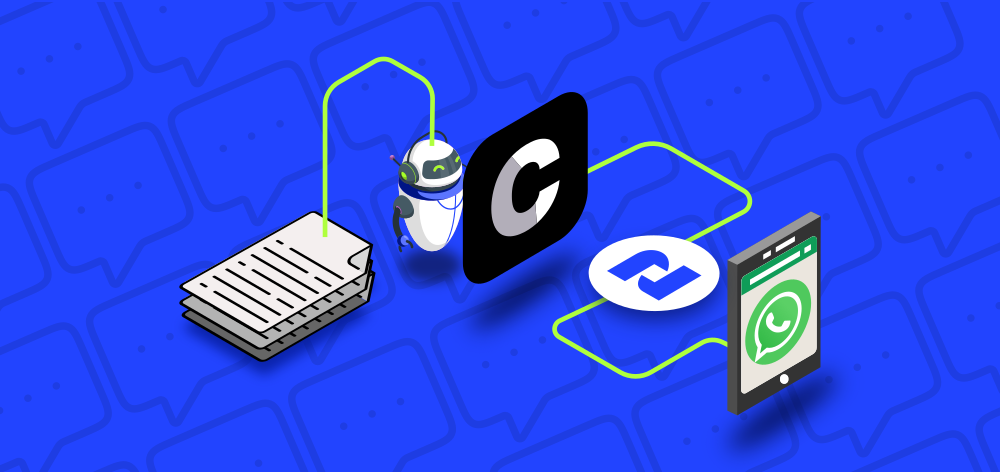Use Chatbase and 2Chat to turn your help docs into a smart WhatsApp chatbot
Learn how to create a functional WhatsApp chatbot that uses information about your product or service to help your customers find the information they need.

A Large Language Model (LLM) chatbot on WhatsApp is crucial for businesses looking to improve customer support, engagement, and cost-effectiveness. With over 2 billion users, WhatsApp provides a vast audience for businesses to reach, and chatbots offer a convenient and personalized way for users to interact with businesses. A WhatsApp chatbot powered by a Language Model can help you scale your customer support efforts, reduce costs, and improve customer satisfaction. In this tutorial, you will learn how to create your own chatbot using your information to answer customers' questions.
By the end of this tutorial, you will have a fully functional WhatsApp chatbot that uses information about your product or service to help customers find the information they need quickly and efficiently. This powerful tool can be used for customer support, lead generation, or even as a virtual assistant for your business.
To get started, make sure you have the following prerequisites:
- A Chatbase paid account because we will need an API key.
- Text or PDF files with information about your business, service, or products
- A 2Chat account
Follow the steps described in the video to create your own intelligent chatbot.
Benefits of an LLM WhatsApp Chatbot
- 24/7 Availability: A chatbot powered by an LLM can operate round the clock, ensuring that customers receive instant responses to their queries at any time of day or night. This continuous availability improves customer satisfaction by providing support even outside regular business hours.
- Instant Responses: Speed is crucial in customer service. LLM-fueled chatbots can analyze and understand queries rapidly, providing immediate responses. This efficiency reduces wait times and enhances the overall customer experience.
- Consistency in Service: Human agents, while effective, can sometimes provide inconsistent information due to various factors like fatigue or oversight. A chatbot ensures uniformity in responses, maintaining a high standard of service quality across all customer interactions.
- Handling High Volumes of Queries: During peak times, human agents can be overwhelmed by the volume of customer inquiries. An LLM chatbot can handle numerous conversations simultaneously without compromising on response quality, ensuring that no customer is left waiting.
- Cost Efficiency: Employing a chatbot can significantly reduce operational costs. It minimizes the need for a large customer support team, cutting down on training, salaries, and other related expenses. Businesses can allocate these savings to other critical areas.
- Multilingual Support: An LLM-powered chatbot can be programmed to understand and respond in multiple languages, making it an invaluable tool for businesses with a global customer base. This feature breaks down language barriers, facilitating better communication and expanding market reach.
- Scalability: As a business grows, so does the demand for customer support. Chatbots can easily scale to meet increasing demands without the need for significant additional resources. This scalability ensures consistent service quality, regardless of the business size or customer base expansion.
In conclusion, using a chatbot fueled by a Large Language Model to answer customer questions on WhatsApp offers numerous benefits, from improved efficiency and cost savings to enhanced customer satisfaction and personalized service. By embracing this technology, businesses can stay ahead of the curve and ensure they meet the evolving expectations of their customers.